Dr. Stavri J. Dajo
Memorie.al / It were necessary to find those suitable figures that would unite these groups, square the contradictions and the struggle for power. In Washington, they thought that such figures could be Abaz Kupi, from the ruling party, Jani Dilo, from “Balli Kombëtar”, or Ismail Vërlaci, from “Blloku Independent Nacional”. The policy of America and the Soviet Union towards Albania, after Enver Hoxha’s conflict with Tito, according to the view of researcher Stavri Dajo, based on American and Soviet archives. The picture of the revolt that was being prepared by the Albanian groups in emigration for the overthrow of Enver Hoxha’s regime
How did Stalin’s conflict with Tito begin?
J. V. Stalin’s conflict with J. B. Tito dates back to early 1945, when a high-level Yugoslav delegation visited the Kremlin and presented the foreign policy of the new Yugoslav federal state to the Soviet government. According to the Yugoslav master plan, the Yugoslav Federation would include the entire part of Macedonia (even Macedonia and the Aegean, up to Thessaloniki, i.e., the Greek territories) and, in the not too distant future, the creation of the Balkan Confederation with , the confederal union of Yugoslavia, Bulgaria, Albania, why not Greece and Romania, according to the Yugoslav federal model.
Stalin was seriously disturbed by the nationalist ambitions of Belgrade and the political arrogance of Tito and, without wasting time, informed Gjergj Dimitrov in Moscow about the Yugoslav plans and expressed his indignation and strong opposition to these chauvinistic intentions of his. Stalin thought that with the indisputable authority as an anti-Nazi fighter, Tito could become a serious counterweight in the Balkans and, as a result, the Soviet Union could lose this strategic area of influence.
The old man of the Kremlin nervously accepted the decisions that were taken in Bled in the summer of 1947 and turned a deaf ear to Gjergj Dimitrov, for his reckless statement “that endangered the entire socialist camp”. Stalin, unequivocally, was against the idea of creating a Balkan Confederation and could not allow such a development which the Kremlin could not directly and completely control.
Hoxha’s conflict with Tito, rift between the Soviet Union and Albania
Even, seeing the centripetal tendencies of Belgrade and especially after the signal from Tirana that Yugoslavia was preparing to install two Yugoslav military divisions in Albania and specifically in Korça (under the pretext of a Greek intervention from the south of the country), which would declared the de facto occupation of Albania, Stalin called at the beginning of February 1948, in a high-level meeting, the Yugoslav leader Josif Broz Tito and the Bulgarian Gjergj Dimitrov in Moscow, to discuss in the first place the developments on the front of the Greek civil war and, especially, the Albanian issue as well as the necessity or not of installing the Yugoslav army in the Albanian territory.
But sensing Stalin’s revolt, Tito avoided the meeting and sent Eduard Gjilas to Moscow. In this meeting, Stalin appeared contradictory, he basically approved the “devouring of Albania”, (as he said in the meeting), by Yugoslavia, but drew the attention of the Yugoslavs to find the appropriate ways and means to realize this plan.
“It is not possible to solve the issue of Trieste and the union with Albania at the same time, without any reaction from the British”, said Stalin. So, in a way, the Albanian issue and Enver Hoxha’s conflict with Tito were becoming the primary factor for Moscow’s rift with Belgrade and for the irritation within the newly formed socialist family.
The condemnation of the Yugoslav Communist Party by the Informburo, finally in the summer of 1948, was, of course, an event of extraordinary importance in the socialist camp, but, correspondingly, it raised great doubts and questions among the Western Allies, who, even as expected, they were surprised.
At first, they followed from afar the developments in Belgrade’s relations with Moscow and, in general, Tito’s relations with the Kremlin’s satellite states. Throughout the summer of 1948, Yugoslavia found itself isolated from the West and the Titist regime was seriously threatened.
Tito, however, had taken care in time and behind the scenes had entered into secret negotiations with both the Americans and the British, seeking economic aid and guarantees for the future of his regime and the Yugoslav Federation, which was threatened by the plans Russian, according to Tito, to disintegrate.
Albania under the threat of Yugoslav invasion
Albania, on the other hand, also found itself in a very difficult position, because it was isolated from the rest of its Eastern allies, while with the end of the Greek Civil War, the pressures of Athens, through its Western allies, became even more large for the landing of the Greek army in South Albania, in pursuit of the Greek guerrillas who entered the Albanian land en masse.
Enver Hoxha’s regime and Albania itself are faced with a real threat. The comments of the French ambassador in Tirana at that time are characteristic. “In the event that the Greek armed forces will really be concentrated along the southern Albanian border, this would be enough to signal a general revolt in Albania, which would result in the overthrow of Enver Hoxha’s communist regime,” he said. Apparently he.
At the same time, in Tirana, the conviction was expressed that in addition to the threat from the South, Albania must now also face the Yugoslav threat. Tito’s goal was twofold: the overthrow of Enver Hoxha from the leadership of the Albanian Communist Party and the transformation of Albania into a republic of seven Yugoslavians.
In his efforts, it was not excluded that Belgrade would come to an agreement with Athens for the dismemberment of Albania and the implementation of the Greek proposal, expressed by Constantin Tsaldaris, at the Paris Peace Conference, in the summer of 1946. Therefore, the communist leadership of Tirana, did his best to give the problem an international dimension, denouncing the Yugoslav expansionist and chauvinist plans.
Those who could overthrow the regime…!
On the other hand, the Albanian-Yugoslav rift brought about the cancellation of all bilateral agreements. This brought Albania to the edge of the precipice. Albania has not signed economic agreements with other countries, except those with Yugoslavia.
Supplying Albania with material goods for daily consumption was the main objective of the government of Tirana. “It is a fact,” notes Enver Hoxha, “that Yugoslavia benefited from a great deal of help from the Soviet Union, while, on the contrary, it did not help Albania enough.”
Meanwhile, after the war, Great Britain and the United States of America did not take the Albanian issue seriously. Tirana’s policy and engagement in the Greek issue, led Albania to many dangers.
Recent developments in the socialist camp favored the plans of Enver Hoxha’s political opponents, inside and outside the country, who believed that London and Washington would change their policy and help their efforts to overthrow the Stalinist regime in Tirana.
Their role, they believed, will be more sensitive and will accelerate the fall of communism in Albania. In London and in Washington, they noticed that the political opponents of Enver Hoxha, even the former King Zog himself, who was in Egypt, were making frantic efforts to find a consensus that would unite forces against the communist regime in Tirana.
The State Department, closely following these efforts, asked the American diplomatic services, in European capitals, to collect data on the anti-communist movement of these groups, in the fight against Enver Hoxha’s regime.
From Rome, which continued to be the metropolis of the anti-communist movement of Enver Hoxha’s opposing groups, the State Department was informed that: currently, in various concentration camps, about 200 people were waiting for the signal to undertake a large-scale operation against Enver Hoxha.
In various camps, such as in Reggio Emiglio, Rome and Bologna, but also elsewhere, lived many refugees and other political persecuted, victims of the Tirana regime, and their condition was miserable. All of them wanted to leave for the United States and South Africa, or for other countries in Europe.
The State Department concluded that: these groups were united by the pathos of the war against communism; they believed that they would have, in any case, the help and support of the Western allies, but they expressed their skepticism, doubt and alarm about the actions and plans of Athens.
Washington: Enver Hoxha’s opponents, brawlers
But the American services at the same time noticed that these groups were characterized by old grudges, quarrels and irreconcilable disputes and the relations between them were more than hostile, which prevented the realization of their long-term goals, which was the eradication of communism from Albania.
The former king Zog, who tried to benefit from the Western strategy in the Balkans, especially after the contradictions between Albania and Yugoslavia, was differentiated from the other groups from the beginning. Zogu, was more convinced that these grudges and the fight for life and death, that these groups had announced to each other, the complete lack of unity, created big problems and testified to their final defeat and failure in the efforts started.
The bird was very angry with these organizations promoting their own people and leaving out those of the Royal Court, even himself. Under these conditions, Zogu did not have to become a bridge to their plans and goals. In conclusion, the Americans believed that the communist regime would not be overthrown without the concrete help of the western allies and without the unanimous support of the anti-communist groups, inside and outside Albania.
Also, it was necessary to find those suitable figures that would unite these groups, square the contradictions and the struggle for power. In Washington, they thought that such figures could be Abaz Kupi, from the ruling party, Jani Dilo, from “Balli Kombëtar”, or Ismail Vërlaci, from “Blloku Independent Nacional”.
Many political opponents of the Tirana regime were settled in Athens, but they also had the same problems and expressed their concerns that, in case they would undertake an armed initiative against the communist government, they should also take into account the Greek reaction, but what mattered most was the Western attitude towards Greek teachings.
All organizations reacted strongly to the Greek intentions, but also to the intrigues of Belgrade, which had occupied Kosovo and now sought to devour all of Albania and turn it into a republic of seven Yugoslavians. But on the other hand, this was also a pretext found by them to hide the impossibility of fighting the Tirana regime.
King Zog sets up the Royal Government in exile
Former King Zog, in March, had announced the formation of a royal government of immigration and made efforts for its recognition by Western allies, especially the United States of America. For this reason, he sent to Washington his associate and trusted representative, Sotir Martini, (former minister of the Royal Court), to talk to the Americans to gauge their pulse on whether they would recognize his shadow government.
Even, in order to take advantage of Enver Hoxha’s conflicts with the government of Athens, both on the issue of aid to the guerrillas and on the open issue of Northern Epirus, Zogu, in March 1948, sent a delegation to Greece to talk about his future plans regarding Albania. Zogu sought the approval of the Greek government for his plans.
He demanded that Greece allow his supporters to use Greek territory as a base for their activity against the communist regime in Tirana. In case he would announce an Albanian government of immigration, he asked the Greek side to recognize it immediately.
Zogu repeated this proposal in May of the same year, but the Greek government did not give him a direct answer, because he saw that his authority in Albania was declining and he did not believe that in the future he could return to the political life of his country, all the more to influence the political scene.
But at the beginning of September, seeing Zog’s persistence, the Greek authorities requested information from the State Department about his plans and tendencies, about his financial resources and about his political and economic activity, about the weapons he had, because there were rumors that trumpeted that then, he would organize an armed revolt in Albania, after the new conditions that had been created in the Balkans.
In October, the State Department sent to Athens detailed information about the former King Zog and his political activity, underlining at the beginning that he was a suspicious person and therefore had to be treated with great reserve, because whenever he had few supporters.
But the State Department did not rule out the possibility that in the future, Zogu would be able to unite the Albanians to overthrow the government in Albania, which was their common objective.
Impossible attempts to overthrow the regime
These movements of political groups abroad caught the attention of the Albanian government, which in December 1948, requested data on the activity of Mithat Frashër that in Tirana there were people who believed that he was the inspirer and organizer of these groups.
In a secret report, dated November 4, 1948, it is noted that: on December 15, an extended meeting would be organized in Rome, in order to find a common denominator in their struggle against Enver Hoxha and his regime Stalinist.
Mehdi Frashëri, ultimately, did not accept the proposal of other groups and declared that: he would not cooperate with declared criminals such as Xhafer Deva, or with his personal enemy, King Zog, no matter how this hinders the common cause.
Despite the known contradictions, in mid-February, the most sworn and most determined opponents of the communist regime, Alush Lleshanaku, Haki Blloshmi, Ndue Mëlyshi and Ndue Pjetër Gjonmarkaj, parachuted into Northern Albania, in an attempt to encourage the population of the Northern provinces, in an armed revolt against the regime.
The preparation, as is already known, was done in Malta with the help and care of British military officers. This initiative was also approved by the Americans, even by Tito himself, as evidenced by newly opened archival documents. But the first operation failed. The landing on Albanian soil was not done at the right destination and this proved that the operation was de-conspired and betrayed.
The betrayal of this operation, it is widely believed, must be specially charged to the much-talked-about British agent, Kim Philby, who was put in the service of the Soviet Security Service (KGB). Of course, Philby played an undoubted role in the failure of the operation and the conspiracies that followed it.
But other factors should not be left out of consideration, such as the perfect organization of the Albanian State Security, according to the Soviet model, but, first of all, the contradictions and grudges within the opposing groups themselves, which, according to probability, revealing their own plans.
Even the Albanian embassy in Rome at that time was very active and nothing escaped her eye. After the failure of the first operation, without achieving any concrete results, Alush Lleshanaku returned to Greece and from there he tried to enter Albania again, but even this time, it was seen that his plans were well known by the forces of the Albanian Security. Memorie.al




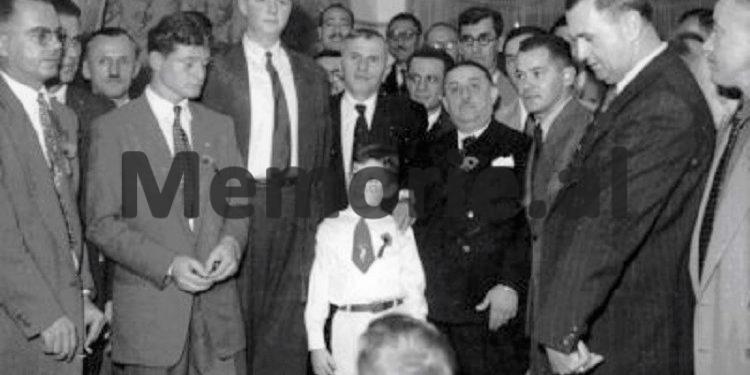
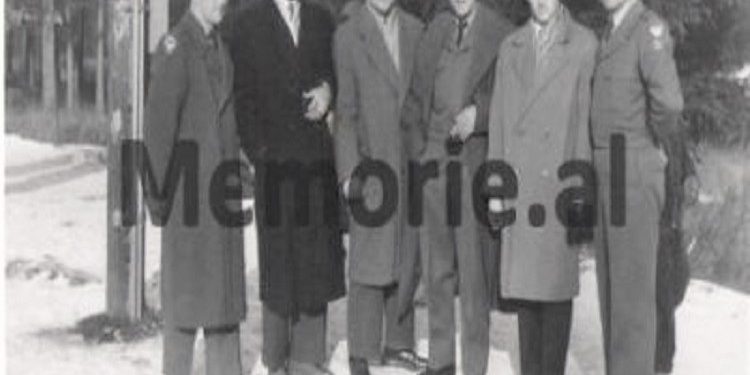

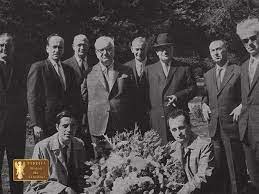
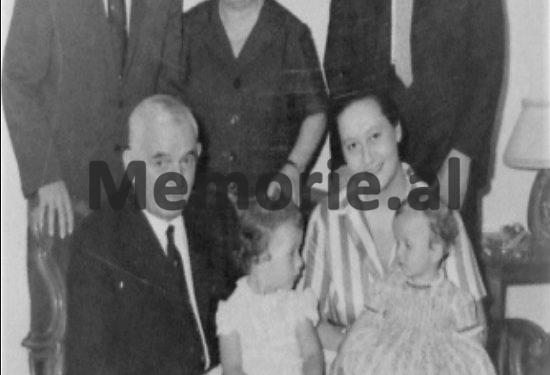
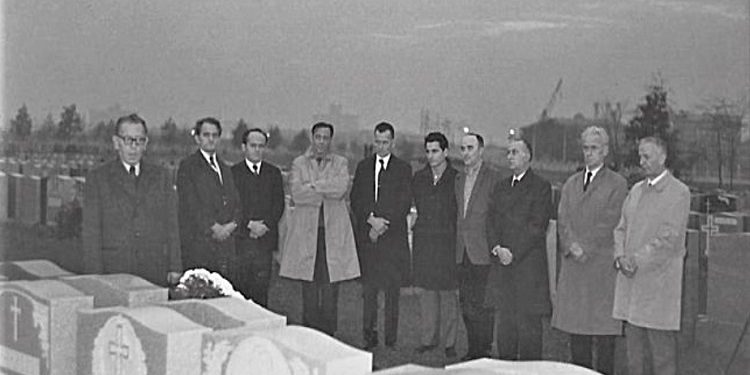
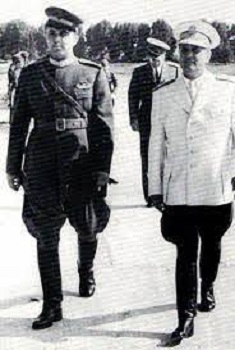
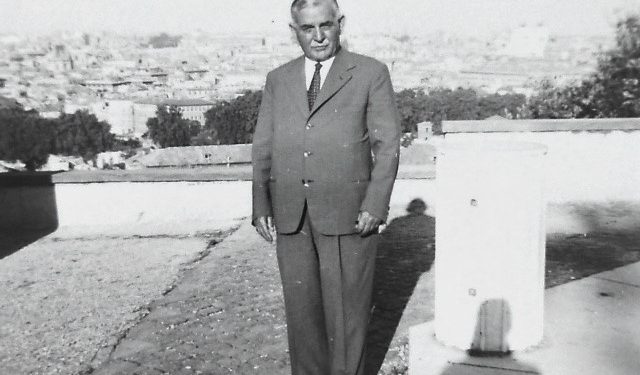
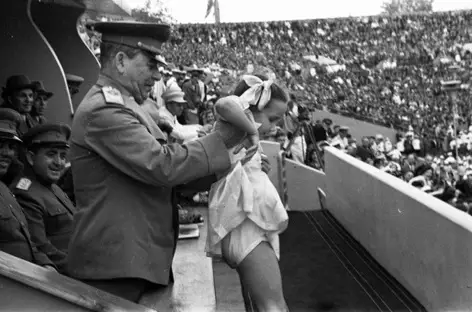
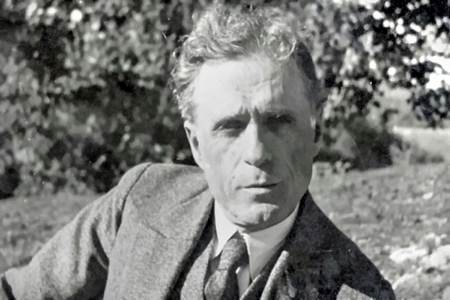
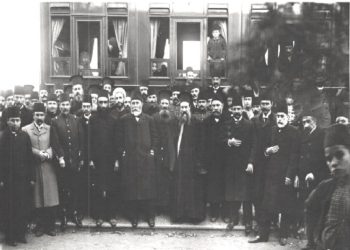
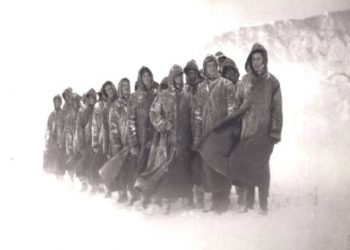

![“When the party secretary told me: ‘Why are you going to the city? Your comrades are harvesting wheat in the [voluntary] action, where the Party and Comrade Enver call them, while you wander about; they are fighting in Vietnam,’ I…”/ Reflections of the writer from Vlora.](https://memorie.al/wp-content/uploads/2025/06/admin-ajax-4-350x250.jpg)


